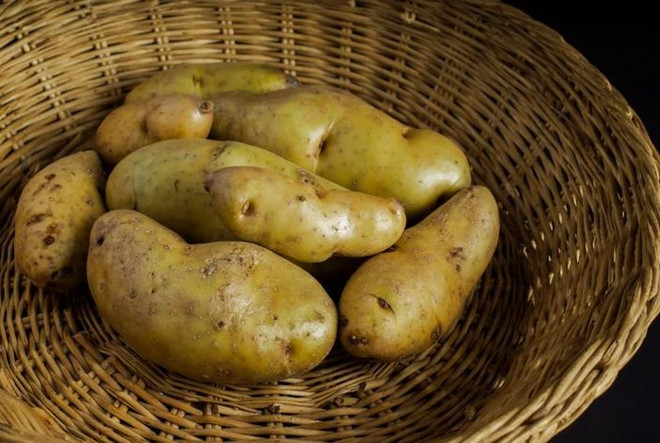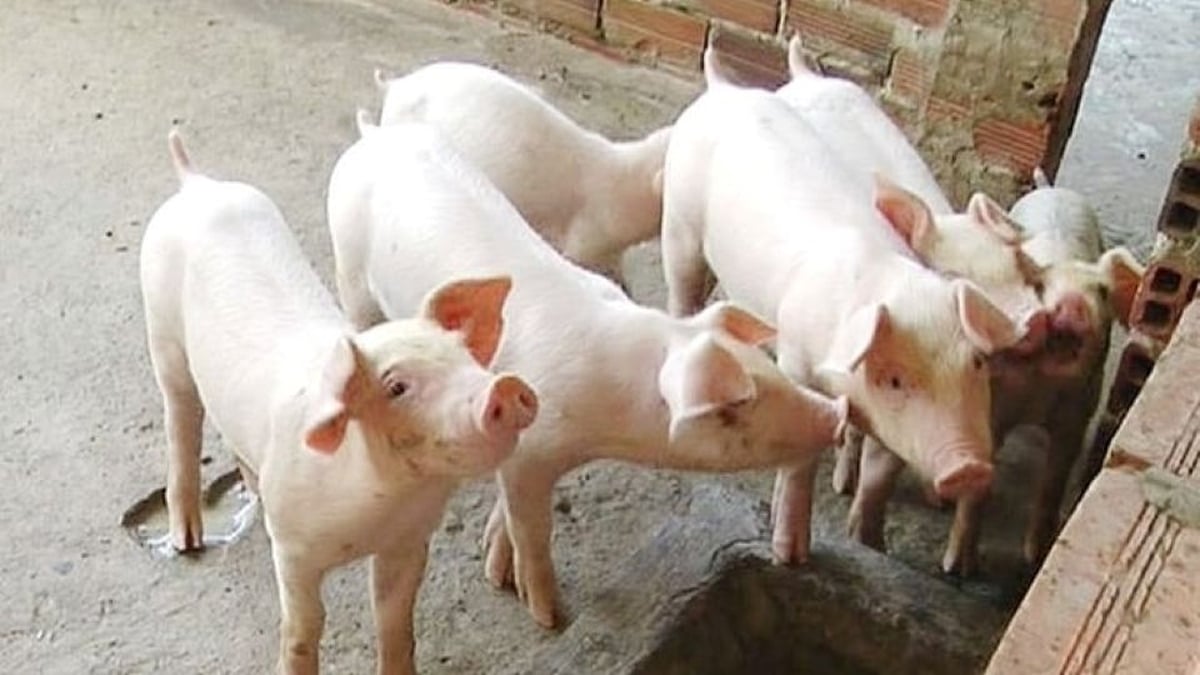There's a question that many potato lovers often wonder: are potatoes that look "a little weird" - like turning green or sprouting - still edible?
If you've ever left potatoes in the pantry or cupboard for too long, you've probably noticed how they grow tiny "eyes" and turn a pale green.
With the trend of embracing “ugly vegetables” to reduce food waste, many people think that odd-looking potatoes are okay. But is it really? Are sprouted or green potatoes safe to eat?
Huffpost asked food safety and nutrition experts for the definitive answer. Here's what they had to say—and why you should still keep potatoes in your diet.
Sprouting Potatoes: Be Careful But Don't Panic
The good news is: if potatoes start to sprout, they're still edible, as long as the sprouts haven't grown too large.
“These sprouts contain a toxin called solanine, which can cause symptoms such as headaches, vomiting and gastrointestinal upset if consumed in large quantities,” says Ellen Shumaker, director of the Safe Plates program at North Carolina State University.
“However, if the sprouts are small and the potato is still firm, not wrinkled or mushy, you can cut off the sprouts and use the rest as normal.”
Green Potatoes: Do Not Eat
Nutritionist Maggie Michalczyk, founder of Once Upon a Pumpkin, warns against eating potatoes that have turned green. “Sunlight turns potatoes green because it produces chlorophyll, but the real problem is the buildup of toxins.”
“When potatoes turn green, it signals the formation of solanine, which is also found in sprouts,” agrees Shumaker. “If the greening is just a small spot, you can cut it off. But if the greening is large, it’s best to throw the potato away.”
When should you throw away potatoes?
The two main signs that a potato has started to spoil are sprouting and turning green. But if it's soft, wrinkled, or has a strange smell, don't hesitate to throw it out.
Solanine poisoning doesn't just cause stomach cramps. In severe cases, it can also lead to nerve paralysis.
Nutritionally: Sprouted and green potatoes are no better

Not only are they unsafe, sprouted or green potatoes also taste bitter and have lower nutritional value.
According to nutritionist Tamar Samuels, exposure to light and high temperatures causes potatoes to oxidize more and potentially lose some of their nutrients.
Meanwhile, normal potatoes are rich in vitamins and minerals.
Cooked potatoes with the skin on are a good source of many essential vitamins and minerals, such as vitamin C and potassium.
Potatoes are mostly water, in addition the main ingredients of potatoes include carbs, protein and a moderate amount of fiber, especially potatoes have almost no fat.
In fact, potatoes have saved thousands of lives throughout history thanks to their vitamin C content which helps fight scurvy (vitamin C deficiency).
Scurvy is the name of a vitamin C deficiency. It can cause anemia, weakness, fatigue, spontaneous bleeding, pain in the limbs, especially in the legs, swelling of some parts of the body, and sometimes gum inflammation and tooth loss.
How to keep potatoes fresh?
Don’t let the fear of solanine keep you from this wonderful root vegetable. Just store it properly: keep it in a cool, dry place, away from light – you can put it in a paper bag or a dark box. And if you see the potato starting to turn green or sprout a lot, throw it away to protect your health./.
Source: https://www.vietnamplus.vn/khoai-tay-moc-mam-hay-nga-xanh-co-an-duoc-khong-post1039400.vnp






















![[Photo] National Assembly Chairman Tran Thanh Man visits Vietnamese Heroic Mother Ta Thi Tran](https://vphoto.vietnam.vn/thumb/1200x675/vietnam/resource/IMAGE/2025/7/20/765c0bd057dd44ad83ab89fe0255b783)

















































































Comment (0)